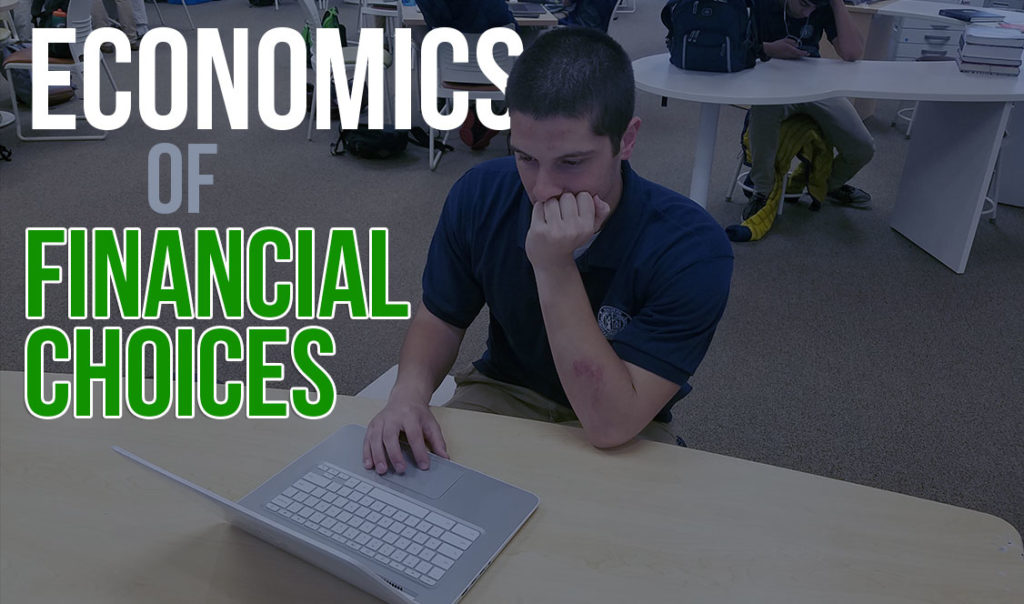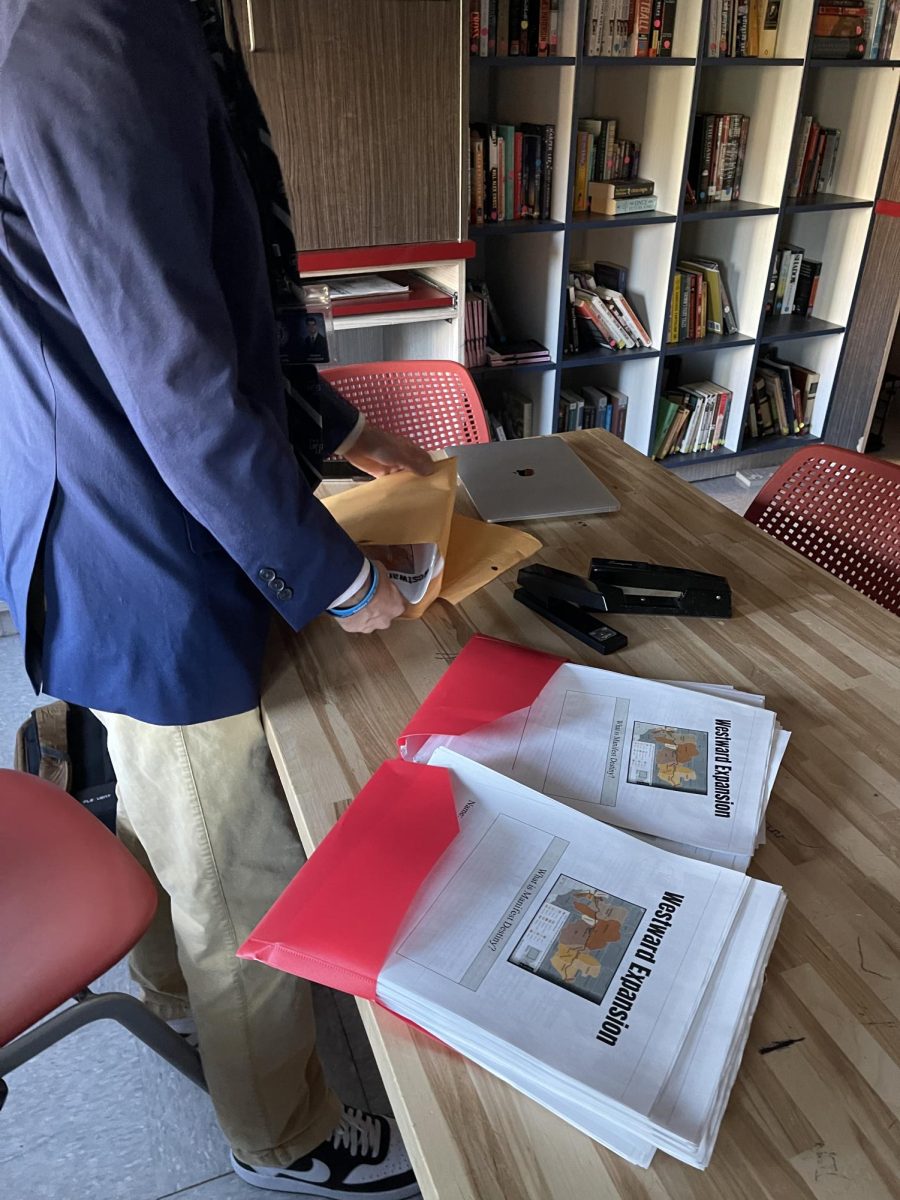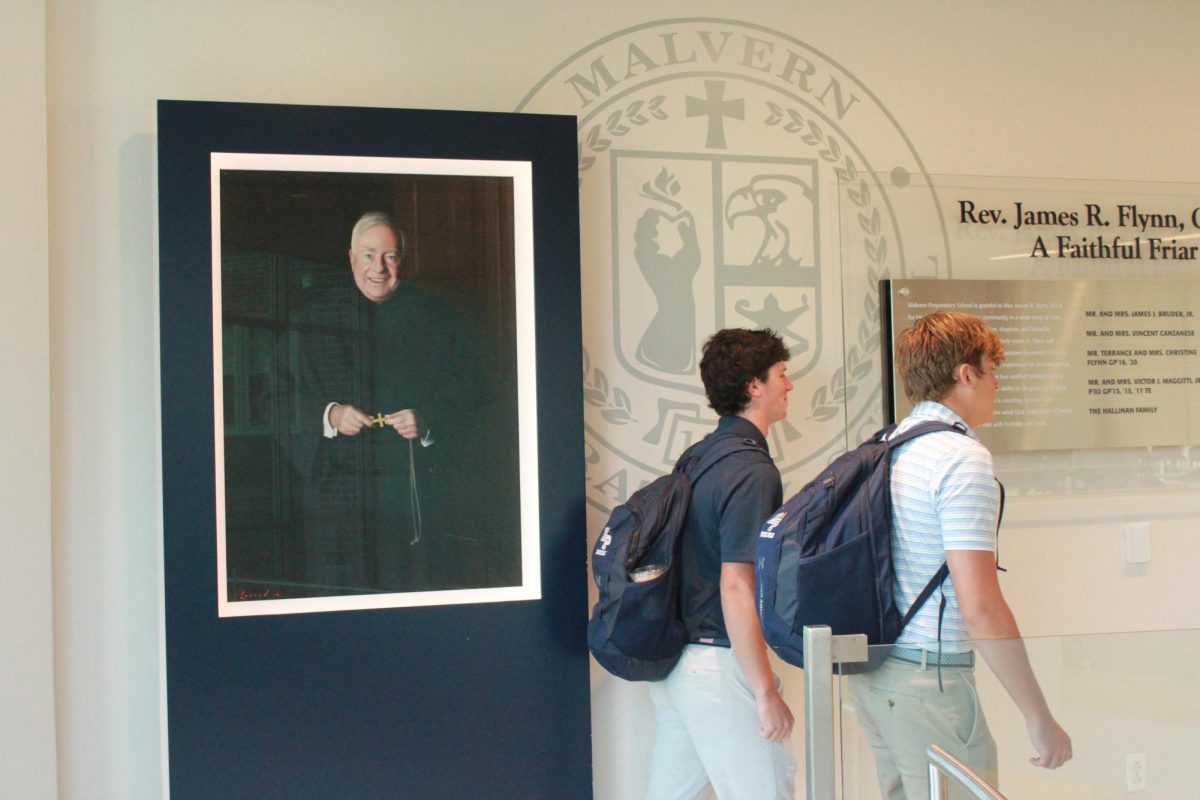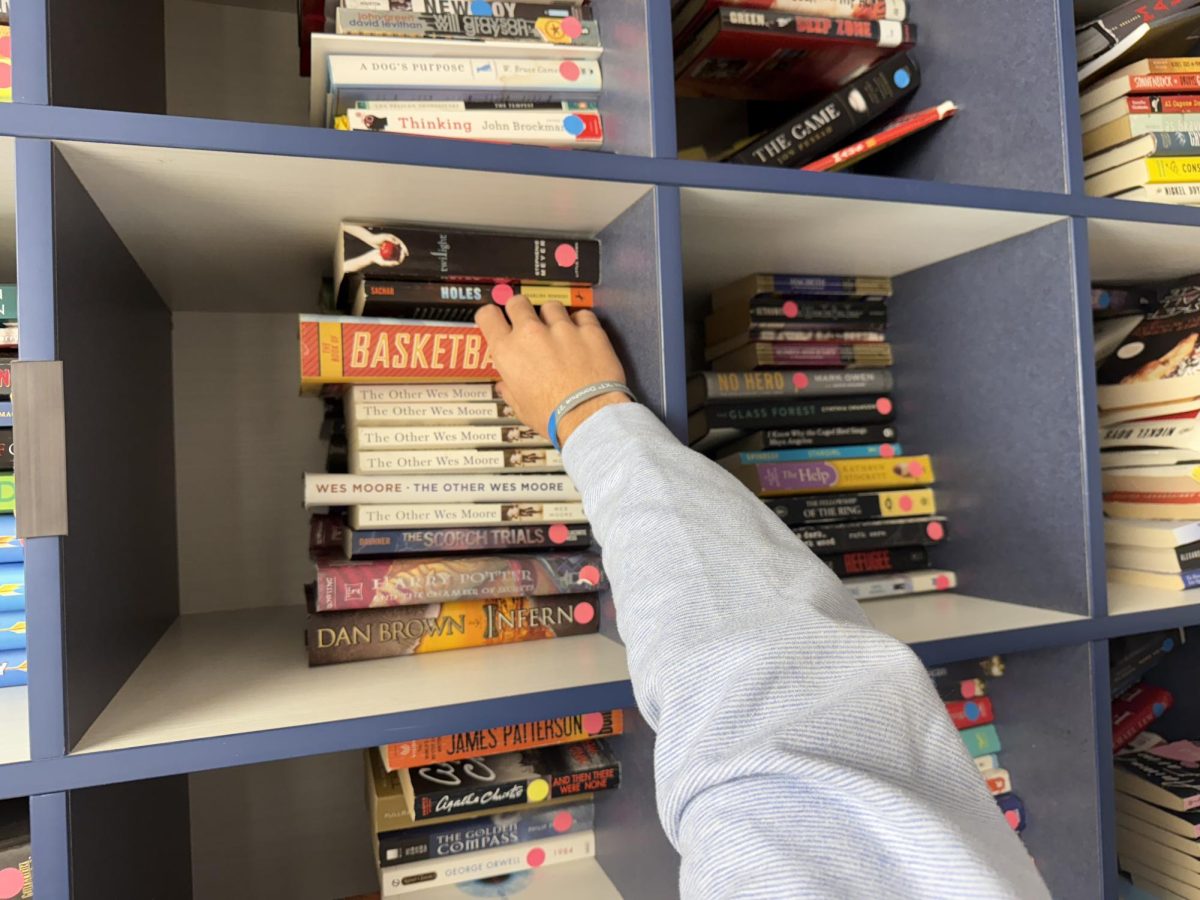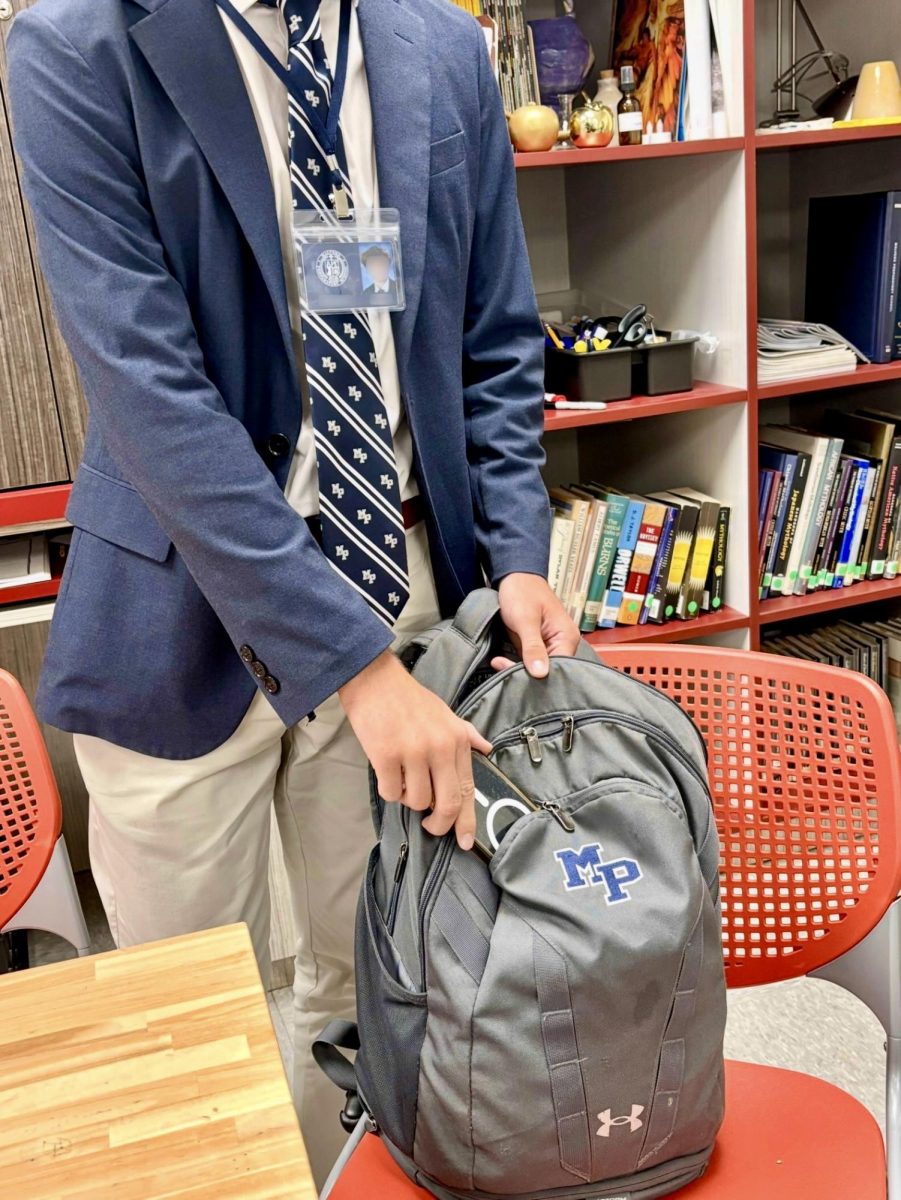An idea for a new course has become reality for the 2018-2019 school year.
Junior Claudio Chieffo came up with an idea to introduce a proposal for a new economics course, Economics of Financial Choices, and he has seen successful results.
“It all started after a chapel service. Somebody said that they wanted to be a business major and I was thinking the same thing, but then I thought about what I knew about business and I said to myself, ‘not much,’” Chieffo said.
Taken back by this realization, Chieffo decided to take action into his own hands.
“Everybody always complains that we don’t have a practical business course for personal or professional use, so I thought it would be a good idea to implement it,” Chieffo said.
Rather than offer it as a J-Term course, Chieffo decided a full year course was necessary.
“Right from the beginning I wanted it to be an elective, because a J-Term course would not be long enough and an independent study wouldn’t be enough, I wanted it to be a mass scale class and for everyone at Malvern to take this class,” Chieffo said.
Chieffo finalized the details and prepared to pitch his idea to Malvern.
[perfectpullquote align=”right” bordertop=”false” cite=”” link=”” color=”” class=”” size=””]
“Everybody always complains that we don’t have a practical business course for personal or professional use, so I thought it would be a good idea to implement it.”
-Claudio Chieffo ’19
[/perfectpullquote]
“The first thing I did was I went on my computer and typed up what I thought the course would look like so I would have something to propose,” Chieffo said. “Then I got some feedback from other students about what they would want out of it and pitched it to my counselor Mrs. [Kelley] Bittner.”
Chieffo also showed his idea to Assistant Head of School for Academics Mr. Patrick Sillup.
“After I took it to Mr. Sillup that is when we seriously began to brainstorm exactly how the actual class would look, and then he paired me with Mrs. [Beverly] Gordon and Mr. [John] Ostick,” Chieffo said.
The original idea for the class has changed over time, and Chieffo is all for it.
“The idea has gotten a lot better than originally honestly, and the first thing I thought was it was going to be a personal economics class. But, thanks to the great people I was paired with, it has become a lot more involved and practical,” Chieffo said.
Economics teacher Mr. John Ostick is excited to teach new ideas to his students.
“For years now the idea has been that high schoolers aren’t exposed to these ideas enough, the goal is to make these kids aware of the decisions they will be making later in life.” he said.
Ostick is very impressed with how the idea was presented to him for the course.
“This year a few juniors, Claudio Chieffo being the main one, asked if there was any chance there could be a course about their lifelong financial decisions. Mrs. Gordon, Mr. Sillup, and I got together and said that was a great idea,” he said.
Rather than create an entirely new course from scratch, they decided to rewire the current non-AP Economics course.
“We took the class that had been around for years and restructured it, making it more about the financial decisions and such Claudio proposed to us, so that is what we are designing,” Ostick said.
The class will be open to all Malvern juniors and seniors, according to Ostick.
[perfectpullquote align=”right” bordertop=”false” cite=”” link=”” color=”” class=”” size=””]“There are no prerequisites, the course is not honors or AP level, we will look at those financial topics from a project based level.”
-Mr. John Ostick[/perfectpullquote]
“There are no prerequisites, the course is not honors or AP level, we will look at those financial topics from a project based level,” he said. “The course will also be open to the parents and alumni, along with experts in the field, to partner with us in the lessons.”
The AP Economics course will not conflict with the new course. “Students who want to take Economics at the highest level, at AP, can still take this class as well, I want to make sure there is no confusion there,” Ostick said.
The course is not merely a financial literacy class, according to Ostick. “This is a much more project based level with consultants from the outside talking about their case studies. It is not a financial literacy class, the reason I say that is financial literacy would not be accepted by the NCAA, they would claim there is not enough academic rigor,” he said.
The issue of whether the class would be recognized by the NCAA and how students would get credits for taking the course was one that Chieffo needed to work with faculty to resolve.
“The whole eligibility and credit process was a big hoop we had to jump through when this course became a reality, but with our great faculty, I feel we got that done pretty easily,” Chieffo said.
Director of School Counseling Mr. Paul Simpson said that the NCAA has specific guidelines students must follow if they wish to participate in Division I or II athletics.
“All Division I and II athletes must go into the NCAA eligibility center and create an account, and answer some questions. They only look at the core five classes a student is taking or has taken, and the student has to meet certain standards for their credits,” Simpson said.
Whenever Malvern introduces a new course, they must send it to the NCAA for approval.
“One example of this is freshmen used to take a course called Ancient Civilizations, but it was changed to Global Perspectives. Since the course title changed, the class had to go through the NCAA again for approval,” Simpson said.
Not all courses Malvern proposes count for NCAA credit, however.
“There are definitely courses that have been rejected by the NCAA, such as Social Entrepreneurship. It is not an NCAA approved class,” Simpson said. “That doesn’t matter though, we are not beholden to them. We still see it as valuable, but we want to make sure a student takes the core courses necessary.”
Dean of Faculty Coaching and Development and social studies teacher Mrs. Beverly Gordon says the course will be much more aligned with current events than previous years.
“We will be using outside resources, such as guest speakers, alumni, local businesses, and the Wall Street Journal to make it more connected with the real world,” she said. “There will be topics ranging from trade and tariffs to the way in which businesses runs at a micro level, it will deal with a variety of topics.”
The material will be heavily influenced by current events.
“Last year in my economics class I focused a lot on the close connection between economics and politics, it was an election year and made a lot of sense,” Gordon said. “So look for that but even more so next year, along with outside experts.”


